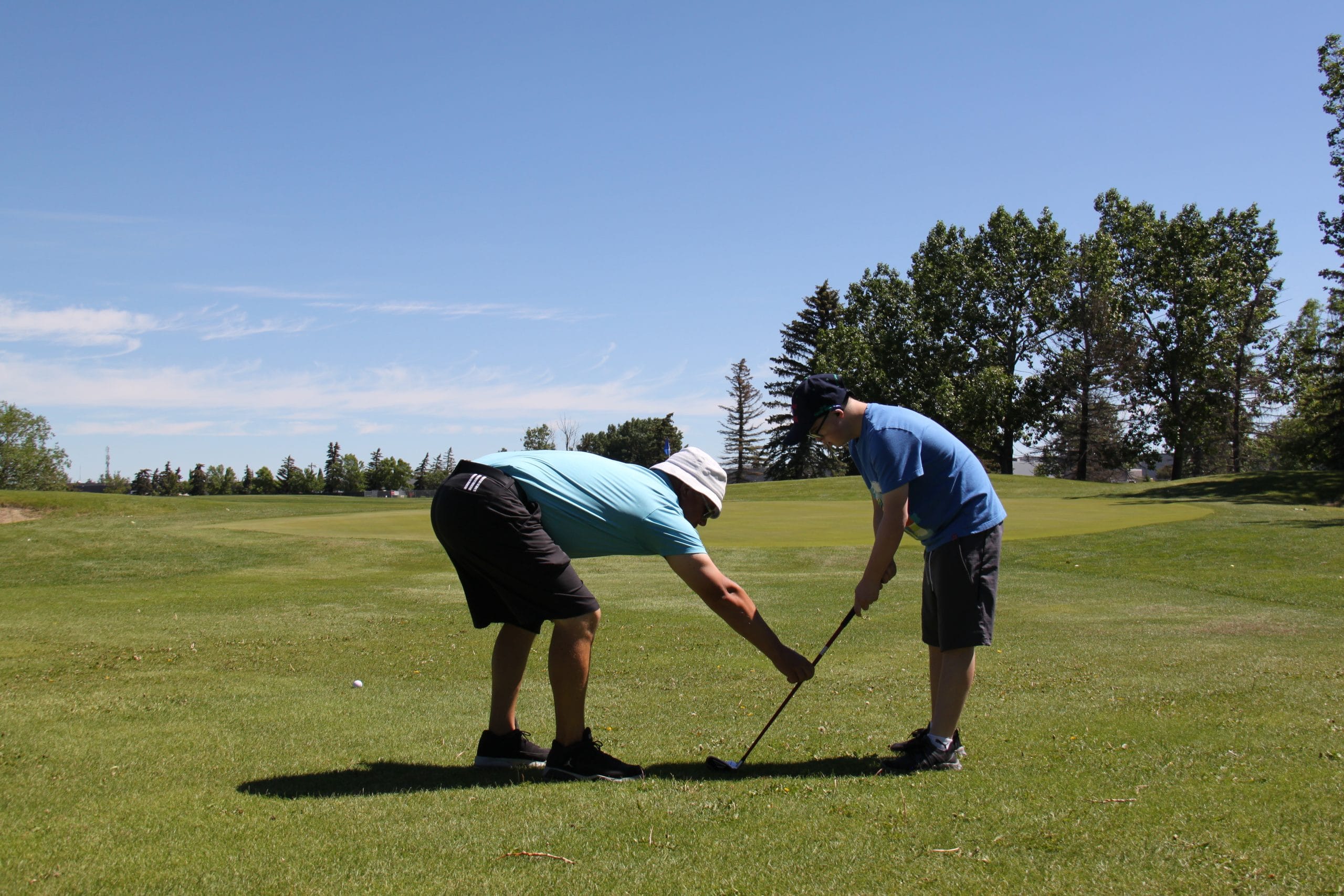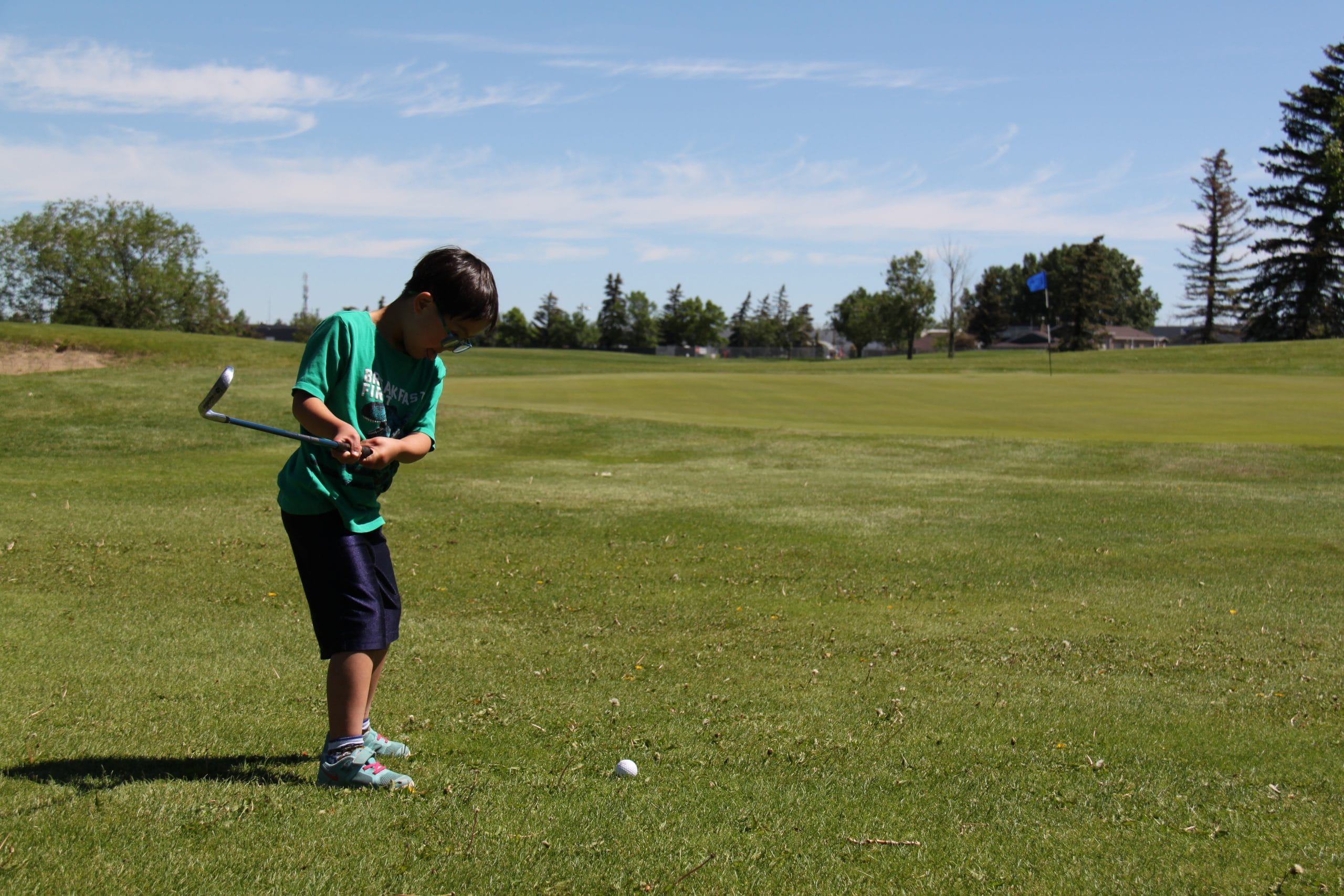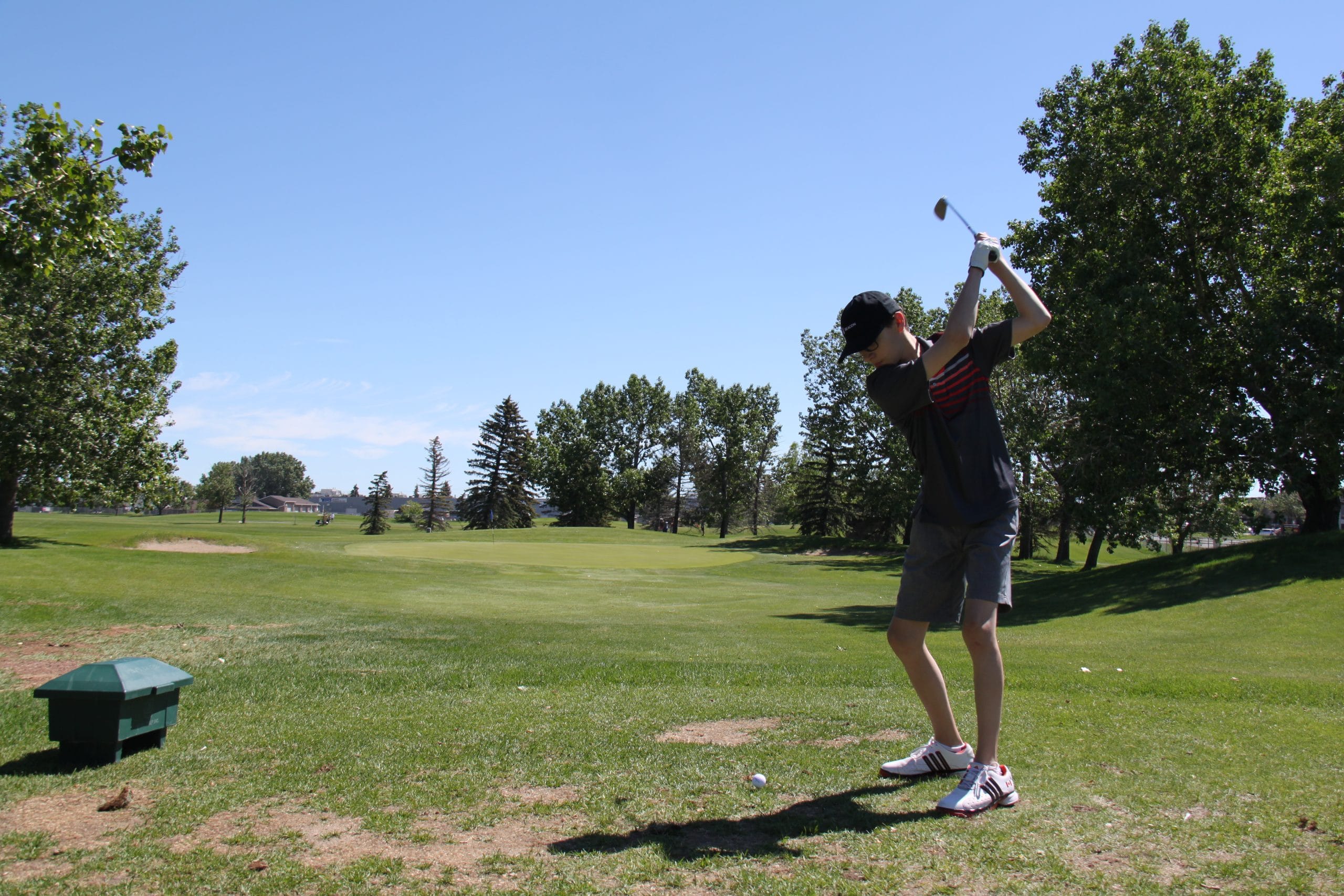
How Golf Teaches Life Skills to People with Down Syndrome
Sports like golf aren’t just an opportunity for physical activity; they can also teach important skills and life lessons. That’s just as true—perhaps even more so—for people with Down syndrome. Participating in organized athletics is an effective way for these individuals to build critical competencies in structured environments before taking what they’ve learned out into the world as independent members of society.
Golf, in particular, has plenty of valuable lessons that can meaningfully enrich the lives of people with Down syndrome. It helps build confidence, focus, coordination, social skills, and independence. But it’s also a game that promotes joy, presence, and peacefulness—attitudes that help shape the kinds of communities where people with diverse needs can thrive.
At Ups and Downs, we provide resources to help people with Down syndrome take on new challenges and discover what they’re capable of. That’s why we’re so grateful to have received support from The Winston Golf Club, which will help us continue creating opportunities for our members to engage in sports like golf and experience the many benefits it has to offer.

4 Critical Life Skills that Golf Promotes
Navigating the world as a person with Down syndrome comes with unique challenges and demands unique skills. People with Down syndrome frequently put in greater effort to communicate with others and perform certain tasks independently.
While physical, occupational, and speech therapies can all provide vital support for people with Down syndrome, games like golf offer a way to develop these competencies in ways that are fun and don’t always feel like work. Sometimes, this can lead to breakthroughs that may not be possible in a therapeutic setting alone.
Here are just some of the critical life skills golf can help instill in people with Down syndrome:
1. Focus & Patience
Golf rewards concentration, patience, and persistence. Learning to control your swing or line up a putt on a manicured green may not feel mentally taxing—but it helps develop the same kind of focus that helps with everyday situations like completing schoolwork. This can help people with Down syndrome develop effective mechanisms for self-regulation. It also teaches them how to manage frustration and celebrate small victories along the way.
2. Coordination & Physical Fitness
Golf helps improve hand-eye coordination, balance, and motor skills. Since many people with Down syndrome have comorbidities that can lead to sedentary lifestyles, developing these competencies can make it easier to stay active and lead to meaningful physical health improvements. Actions like gripping the club, swinging, and following through with a shot engage fine and gross motor skills in a way that’s both enjoyable and beneficial.
3. Independence & Self-Confidence
There’s nothing like the feeling of hitting a great shot, sinking a putt, or completing a round of golf—especially for a player who’s just getting started. Golf can help people with Down syndrome build confidence in their own decision-making abilities, set personal goals, and take pride in their progress.
4. Social Skills & Teamwork
Golf may be an individual sport, but it’s also deeply social. Players routinely interact with coaches, fellow golfers, and course staff—which teaches communication, sportsmanship, and teamwork. Whether it’s cheering on a friend’s great shot or practicing proper golf etiquette, these interactions can all help individuals with Down syndrome develop greater confidence in social situations.

What Golf Teaches Us about the World We Want to Build
The skills golf promotes can help people with Down syndrome thrive in the world—but the values at the heart of the sport should also remind us of the kind of world we want to create for people with Down syndrome.
Golf is fundamentally a game of peace, joy, and acceptance. It teaches us that you achieve better things when you approach challenges calmly and openly. It shows us the beauty of the world we live in, and asks us to recognize our circumstances so that we can make steady progress towards the outcomes we want to achieve.
Playing golf means acknowledging the obstacles in our path without letting them stop us or take away our hope. That’s the same approach we take to our work at Ups and Downs. Although people with Down syndrome still face many challenges in society, we believe in the power of our mission to help them move forward in life and enjoy each step of the journey.
The donations we receive from businesses and community organizations are a vital part of bringing this vision into reality. Each contribution from supporters like The Winston Golf Club assists us in planning and holding events that encourage independence and confidence in individuals with Down syndrome—on and off the course.

Building Life Skills—One Swing at a Time
Golf isn’t just about playing a sport—it’s about learning skills that last a lifetime. From patience and coordination to social connections and self-confidence, the lessons learned on the golf course extend far beyond the game itself.
Ups and Downs is grateful for the support of our community partners like The Winston Golf Club. Their involvement helps us remain well-equipped to create a more compassionate and inclusive society where people with Down syndrome can embrace their full potential.
Whether it’s on the course or in everyday life, our association and our partners view every challenge as an opportunity to shape a brighter future. And to us, that’s a game worth playing.